Are you a UK business owner seeking to access quick capital without taking out a traditional loan? Invoice factoring could be the answer for you.
It is an innovative finance tool used by businesses of all sizes, and it helps them to unlock funds that are tied up in unpaid invoices.
Featured pro tools
What is invoice factoring?
Invoice factoring is a financial arrangement where a business sells its outstanding invoices to a third-party service provider. The service provider gives the business an advance on the invoice amount and then collects payment from the customer when it’s due. This helps businesses access cash quickly without having to wait for customers to pay their overdue invoices.
This type of business borrowing can also help to manage cash flow and allow businesses to take on larger orders or expand their operations. It is a flexible service, as the provider will tailor the arrangement to meet individual businesses’ needs.
Best invoice factoring companies
| Factoring company | Advance rate (max) | Eligibility |
|---|---|---|
| Bibby Financial Services | 90% | Annual turnover over £100,000 |
| Close Brothers Invoice Finance | 90% | Projected turnover above £500,000 |
| Creative Capital | 92% | None |
| eCapital Factoring | 96% | |
| IGF Commercial Finance | 90% | None |
| Kriya | 90% | Must be a limited company with turnover of £250,000 |
| Novuna Invoice Finance | 85% | Annual turnover above £50,000 (recommended) |
| Nucleus Commercial Finance | 85% | None |
| Previse | 90% | Trading for 12 months minimum |
| Pulse Cashflow Finance | 90% | None |
| Skipton Business Finance | 90% | To £30 million |
| Team Factors | 90% | None |
| Time Finance Plc | 90% | None |
Bibby Financial Services
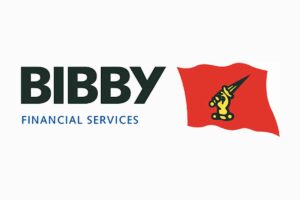
Bibby Financial Services is one of the UK’s leading independent invoice finance specialist, offering flexible funding solutions to businesses.
By releasing cash from invoices in advance of customer payments, they help improve cash flow, manage credit control, and support business growth across various sectors, including construction, recruitment, and international trade.
Invoice finance products
Bibby Financial Services provides a range of invoice finance solutions, including invoice factoring, discounting, and construction finance.
Their services are designed to release cash from outstanding invoices, with options for businesses to manage their own customer payments or to utilise Bibby’s dedicated credit control team.
They also offer bad debt protection, asset finance, and foreign exchange services to support international transactions.
Pros and cons
Pros:
- Flexible funding solutions that grow with your business.
- Dedicated credit control team available, freeing up time for business owners.
- Bad debt protection to safeguard against non-payment.
- Supports a wide range of industries and business sizes.
Cons:
- The cost of services can vary and may be higher than traditional banking solutions for some businesses.
- Invoice factoring involves third-party communication with clients, which may not be preferred by all businesses.
Fees and charges
- Service Fee: Businesses can expect to pay a service fee in the range of 1% to 3% of the invoice value. This fee is for the comprehensive management of the financing service, including credit management and administrative support.
- Discount Charge: For the funds advanced, the interest might typically be quoted as an annual rate but applied monthly. If £10,000 is advanced with an interest rate of 2.5% per month, the monthly interest cost would be approximately £250.
- Initial Setup Fee: Setting up an invoice finance facility with Bibby might involve a one-time fee, potentially varying from £400 to £1,500, based on the required setup complexity and service customisation.
- Transaction Fees: For processing each invoice, Bibby might charge a fee that could range from £5 to £40 per invoice, reflecting the processing and administrative costs involved.
- Minimum Service Charges: Bibby might impose a minimum monthly fee, which could be in the ballpark of £300 to £800, ensuring the service remains commercially viable for both parties involved.
- Additional Services Fees: Electing for extras like bad debt protection might incur further charges, likely calculated as a percentage of the finance facility or based on the covered invoice volume.
Further information
Read our Bibby Financial Services review or visit the website.
Close Brothers Invoice Finance
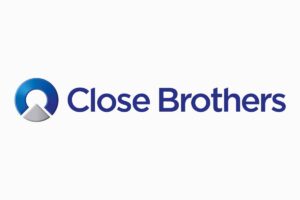
Close Brothers Invoice Finance, part of the Close Brothers Group plc, specialises in offering bespoke invoice finance solutions. They provide a steady cash flow injection by releasing the capital locked in unpaid invoices, catering to a broad range of industries such as manufacturing, recruitment, and more, to help businesses thrive.
Invoice finance products
Close Brothers offers a variety of invoice finance services, including invoice discounting, factoring, and asset-based lending. They provide up to 90% of the invoice value upfront, with the balance paid upon customer payment, minus a fee. Their services are designed to improve cash flow and support business growth, acquisitions, or mergers, and can be tailored to specific business needs.
Pros and cons
Pros:
- Offers tailored financing solutions to match specific business needs.
- Supports a wide array of industries.
- Provides an innovative and flexible approach to funding, adapting as your business grows.
- Utilises leading technology for efficient management and access to funds.
Cons:
- Minimum criteria of projected turnover above £750k could exclude smaller businesses.
- The complexity of different financing options might require thorough consultation to choose the most suitable one.
Fees and charges
The fees for Close Brothers Invoice Finance services vary depending on the specific needs and the chosen services of the business.
- Service Fee: A percentage of the invoice amount, usually ranging from 0.75% to 2.5%. This fee covers the management of the finance service, including credit control and account management.
- Discount Rate (or Factor Rate): The interest charged on the money advanced, often quoted as a monthly percentage of the funds in use. For instance, if £10,000 is advanced at a discount rate of 3% per month, the cost for one month would be £300.
- Setup Fees: One-time fees to set up the facility, which could range from £500 to £5,000, depending on the complexity of the arrangement and the level of customisation required.
- Administration Fees: For additional services such as bad debt protection or special reporting requirements, there may be extra charges. These could be quoted as a fixed fee or as a percentage of the financed amount.
- Minimum Monthly Fees: Likely to require a minimum charge to ensure the facility remains profitable for them. This could be in the region of £250 to £500 per month.
Further information
Read our Close Brothers review or visit the website.
Creative Capital
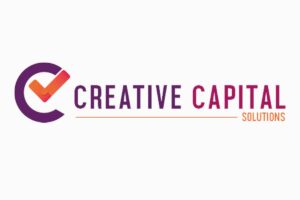
Creative Capital offers innovative cash flow solutions for small and medium-sized businesses, focusing on Selective Invoice Finance and Revolving Credit Facilities. They provide up to 92% advance on invoices and up to £100K credit facilities, aimed at simplifying and stabilising cash flow to support business growth and management.
Invoice finance products
Creative Capital specialises in Selective Invoice Finance, advancing up to 92% of invoice values with simple pricing and debtor insurance. They also offer a Revolving Credit Facility, providing up to £100K for businesses to draw upon as needed, with straightforward repayment terms tailored to cash flow requirements.
Pros and cons
Pros:
- Flexible and quick access to funds.
- Simple, transparent pricing structure.
- Includes debtor insurance for added security.
Cons:
- Primarily suited for small to medium-sized enterprises.
- Limited information available regarding specific fees.
Fees and charges
- Advance Rate: Up to 80% for invoice finance.
- Facility Size: Up to £100K for revolving credit.
- Fees: Likely to include a service fee (percentage of the invoice value), a discount charge (interest rate on the advanced funds), and potential setup or transaction fees. Specific rates are not provided online, emphasising the need for direct consultation for detailed pricing.
Further information
Read our Creative Capital review or visit the website.
eCapital Factoring
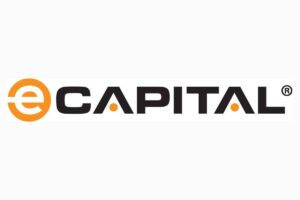
eCapital provides a comprehensive invoice factoring service designed to enhance cash flow for businesses. By converting outstanding invoices into immediate cash, eCapital helps companies manage their liquidity more efficiently, ensuring they have the funds needed for operations, growth, and overcoming financial challenges, tailored to a wide array of industries.
Invoice finance products
eCapital’s invoice factoring service allows businesses to sell their accounts receivable at a discount, offering an up-front cash advance of up to 90% of the invoice value. This service is ideal for businesses looking for immediate cash flow solutions without waiting for invoice payment terms to lapse.
Pros and cons
Pros:
- Immediate access to capital improves liquidity.
- Reduces the burden of credit management and collections.
- Flexible solution that grows with your sales.
Cons:
- Costs associated with factoring may be higher compared to traditional financing.
- Dependence on customers’ creditworthiness for factoring eligibility.
Fees and charges
While eCapital’s specific fees and charges are tailored to each client’s needs and invoice volumes, typical factoring services may include a service fee (ranging from 1% to 5% of the invoice value), and an interest rate on the advanced funds, which is comparable to industry standards for similar financial services.
Further information
Read our eCapital review or visit the website.
IGF Commercial Finance
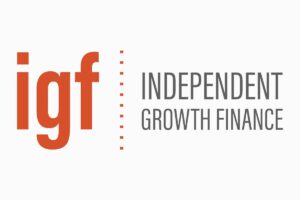
IGF Commercial Finance offers asset-based lending and invoice finance solutions to UK SMEs and lower middle market companies. Specializing in unlocking cash flow from assets like trade debtors, inventory, and machinery, IGF supports businesses aiming for growth, acquisition, or turnaround, catering to companies with turnovers between £3m and £200m.
Invoice finance products
IGF provides comprehensive asset-based lending solutions, centering on invoice finance. They offer funding based on the value of trade debtors, with additional financing options against inventory, plant & machinery, and property. This holistic approach allows for maximum capital release to support various business growth or restructuring scenarios.
Pros and cons
Pros:
- Tailored financing solutions for a broad turnover range.
- Comprehensive asset-based lending offerings.
- Supports a wide range of business scenarios.
Cons:
- Primarily targeted at businesses with a minimum of £3m turnover, potentially excluding smaller enterprises.
Fees and charges
For IGF Commercial Finance, businesses might encounter an arrangement fee (could range from £1,000 to £5,000), a service fee (0.5% to 3% of the invoice value), and interest rates on advances (annual percentage rates varying by case but often competitive with market rates). For exact figures tailored to your business’s needs, it’s best to directly consult with IGF.
Further information
Read our IGF Commercial Finance review or visit the website.
Kriya
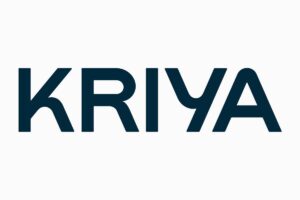
Kriya offers dynamic invoice finance solutions, enabling businesses to access up to 90% of their invoice values within 24 hours. This approach helps bridge cash flow gaps, fuel growth, and manage expenses efficiently, without long-term contracts or hidden fees, maintaining discretion in customer relations.
Invoice finance products
Kriya provides an advance of up to 90% on selected invoices, offering businesses immediate working capital. Their service includes instant credit checks, flexible payment terms, and full control over collections.
Pros and cons
Pros:
- Quick access to funds.
- No hidden fees or long-term contracts.
- Maintains customer relationship integrity.
Cons:
- Limited to businesses with invoice financing needs.
- Dependency on customer’s creditworthiness.
Fees and charges
- Service Fee: Typically, a percentage of the invoice value, which could range from 1.5% to 3.5%.
- Advance Rate: Up to 90% of the invoice amount, with the remainder paid minus fees upon customer payment.
Further information
Read our Kriya review or visit the website.
Novuna Invoice Finance
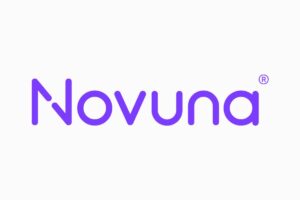
Novuna provides a tailored invoice finance solution that enhances business liquidity by offering up to 85% of invoice values upfront. Their transparent, flexible service is designed for businesses looking to improve cash flow, manage customer relationships directly, and avoid the delays of traditional payment terms.
Invoice finance products
Novuna’s offerings include up to 85% advance on invoices, customer payment collection, and a confidential invoice discounting option for businesses seeking discretion.
Pros and cons
Pros:
- Immediate cash flow improvement
- Customer relationship management
- Simple pricing
Cons:
- Suitability for larger turnovers
- Potential cost implications for smaller invoices.
Fees and charges
Fees range from 0.45% to 5% of turnover, with no hidden fees or setup costs, offering a one-fee solution tailored to business size and needs.
Further information
Read our Novuna review or visit the website.
Nucleus Commercial Finance
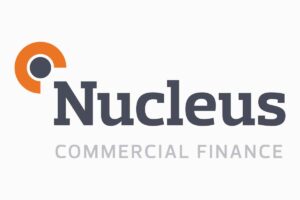
Nucleus Commercial Finance offers innovative invoice finance solutions for UK businesses, enabling quick access to funds by advancing up to 90% of outstanding invoices. Tailored to support growth and manage cash flow, their services are designed for a swift financial boost.
Invoice finance products
Nucleus provides two primary services: Invoice Factoring and Invoice Discounting. Both services allow businesses to receive an advance of up to 90% on their outstanding invoices, improving cash flow and operational efficiency.
Pros and cons
Pros:
- Immediate access to working capital.
- Flexible financing solutions tailored to business needs.
- Supports a variety of industries.
Cons:
- Dependence on customers’ creditworthiness.
- May not be the most cost-effective solution for all businesses.
Fees and charges
Fees vary based on the service selected and the volume of invoices. Typically, businesses might expect:
- A service fee ranging from 0.75% to 2.5% of the invoice value.
- An interest rate on the advanced amount, competitive within the industry.
Further information
Read our Nucleus Commercial Finance review or visit the website.
Previse
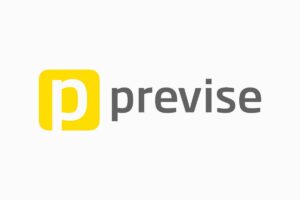
Previse‘s innovative InstantPay leverages AI to offer instant invoice payments, focusing on large enterprises and their suppliers. It uniquely addresses pre-approval financing challenges within supply chain finance, aiming to streamline processes, enhance liquidity, and reduce transactional risk, marking a significant departure from traditional financing models.
Invoice finance products
Previse’s InstantPay provides an AI-driven solution for instant invoice payments, enabling businesses to receive funds for verified invoices before approval. This system is designed to improve cash flow and reduce the waiting period typically associated with invoice payments, making it especially beneficial for suppliers needing quick access to capital.
Pros and cons
Pros:
- Immediate access to funds for suppliers.
- AI-driven system enhances accuracy and efficiency.
- Mitigates common financing risks like dilution and fraud.
Cons:
- Primarily targets large enterprises, potentially limiting accessibility for smaller businesses.
- Dependence on technology for invoice verification may not align with all business processes.
Fees and charges
While specific fees and charges for Previse’s services are tailored to each client, businesses can generally expect a transaction fee model. This could range from a small percentage of the invoice value, offering a cost-effective solution for instant access to funds. For exact figures, businesses should consult directly with Previse.
Further information
Read our Previse review or visit the website.
Pulse Cashflow Finance
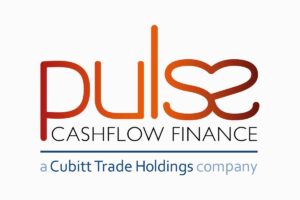
Pulse Cashflow Finance offers tailored invoice finance solutions, enabling businesses to free up to 90% of their outstanding invoice value immediately. This financial service is designed to enhance cash flow, support business growth, and provide optional credit control, making it a strategic choice for managing finances efficiently.
Invoice finance products
Pulse Cashflow Finance provides businesses with immediate access to funds by advancing up to 90% of the value of outstanding invoices. Their service includes optional credit control and sales ledger management, allowing businesses to focus on growth while Pulse handles financial administration.
Pros and cons
Pros:
- Immediate cash flow improvement.
- Flexible funding aligned with business growth.
- Optional credit control and sales ledger management.
Cons:
- May not be suitable for very small businesses.
- Reliance on customer’s ability to pay.
Fees and charges
Fees include a cost of finance, which is a percentage over the bank base rate, and a service fee based on a percentage of annual turnover. The exact rates can vary, offering transparency and control over costs with no hidden fees.
Further information
Read our Pulse Cashflow Finance review or visit the website.
Skipton Business Finance
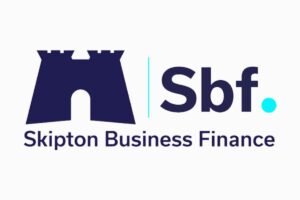
Skipton Business Finance offers bespoke invoice finance solutions, providing advances on outstanding invoices to improve cash flow. With a focus on flexibility and efficiency, businesses can access funds quickly to support growth and operational needs, while Skipton handles credit control and administration, ensuring seamless financial management.
Invoice finance products
Skipton Business Finance’s invoice finance solutions include invoice factoring and discounting, allowing businesses to access up to 90% of their outstanding invoice value upfront. With flexible funding options and optional credit control services, Skipton helps businesses manage cash flow effectively while focusing on growth.
Pros and cons
Pros:
- Immediate access to funds, improving cash flow.
- Flexible funding options tailored to business needs.
- Optional credit control services for streamlined financial management.
Cons:
- Potential dependency on customer payment performance.
- Fees and charges may vary based on individual agreements.
Fees and charges
Skipton Business Finance’s fees typically include:
- Service Fee: 0.5% to 3% of the invoice value.
- Discount Rate: 1.5% to 3% on advanced funds.
- Setup Fee: £500 to £1000 (one-time).
- Administration Fee: £50 to £100 per month.
- Transaction Fee: £10 to £20 per invoice.
Further information
Read our Skipton Business Finance review or visit the website.
Team Factors

Team Factors‘ invoice factoring service ensures your business maintains a reliable cash flow, even when customers delay payments. By advancing up to 90% of your invoice value, you can manage your business’s financial needs without worrying about payment delays.
Invoice finance products
When you raise an invoice, Team Factors advances you up to 90% of the invoice value, minus their fee, directly into your account. Once your customer pays the invoice in full, Team Factors releases the remaining balance, ensuring a consistent cash flow for your business.
Pros and Cons
Pros:
- Speedy setup, with accounts created in as little as 48 hours.
- Immediate payment on invoices raised, allowing for effective planning.
- Transparent and open process, with no hidden costs.
- Experienced and friendly team offering assistance and support.
- Technology combined with real people for efficient service.
Cons:
- Contract terms may not suit all businesses’ needs.
- Dependency on customer payment performance.
- Additional fees for add-on services like debtor protection.
Fees and charges
Team Factors’ invoice factoring service typically incurs the following fees:
- Service Fee: This fee is usually a percentage of the invoice value, ranging from 1% to 3%.
- Additional Charges: Optional add-on services such as payroll and debtor protection may incur extra charges, ranging from £50 to £200 per month.
- Setup Fee: There might be a one-time setup fee of around £500 to £1000.
- Discount Rate: Team Factors may also charge a discount rate on the funds advanced, typically ranging from 1.5% to 3%.
- Transaction Fee: Some transactions may incur a small processing fee, usually around £10 to £20 per invoice.
These fees ensure transparency and flexibility in managing your cash flow effectively. For precise details and tailored pricing, it’s recommended to contact Team Factors directly.
Further information
Read our Team Factors review or visit the website.
Time Finance Plc
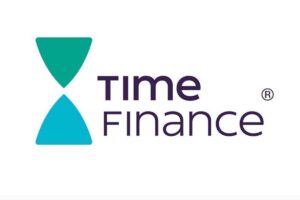
Time Finance Plc provides comprehensive invoice finance solutions to support businesses’ cash flow needs. With a focus on efficiency and flexibility, they offer tailored funding options, including invoice factoring and discounting, enabling businesses to access funds quickly and effectively manage their working capital requirements.
Invoice finance products
Time Finance Plc’s invoice finance solutions encompass invoice factoring and discounting, allowing businesses to access up to 90% of their outstanding invoice value upfront. With flexible funding options and optional credit control services, Time Finance Plc helps businesses manage cash flow efficiently while focusing on growth.
Pros and cons
Pros:
- Immediate access to funds improves cash flow.
- Flexible funding options tailored to business needs.
- Optional credit control services streamline financial management.
Cons:
- Potential dependency on customer payment performance.
- Fees and charges may vary based on individual agreements.
Fees and charges
Time Finance Plc’s fees typically include:
- Service Fee: 0.5% to 3% of the invoice value.
- Discount Rate: 1.5% to 3% on advanced funds.
- Setup Fee: £500 to £1000 (one-time).
- Administration Fee: £50 to £100 per month.
- Transaction Fee: £10 to £20 per invoice.
Further information
Read our Time Finance review or visit the website.
How does invoice factoring work?
Invoice factoring works by transferring the rights of an invoice from a business to a service provider. The service provider advances a percentage (usually around 70-90%) of the value of the invoices to the business and then collects payment directly from customers when they are due.
When the customer pays, minus any fees or charges, the remaining balance is paid to the business.
This process helps to ensure that businesses have access to cash quickly, even if customers are slow in paying. The invoice factoring company will typically transfer the funds quickly into the receiving business bank account.
This type of borrowing can also help small businesses manage their cash flow more effectively and take advantage of new opportunities without having to wait for payment.
What is the difference between invoice discounting and factoring?
Invoice discounting is similar to invoice factoring in that it allows businesses to access cash quickly by selling off outstanding invoices (receivables).
However, with invoice discounting the business is responsible for collecting payment from customers and then remitting the balance back to the service provider minus any fees or charges.
Invoice discounting does not offer the same level of protection that factoring does, as the business is still responsible for collecting payment.
Invoice discounting tends to be more suitable for larger businesses with more established customer relationships and stronger collections processes. With invoice factoring, the service provider takes care of all aspects of the collection process.
How much does invoice factoring cost?
The cost of invoice factoring can vary depending on the service provider and the individual agreement. Generally, businesses will pay a set fee for each invoice they send to the service provider. This fee is typically between 1% to 5%.
In addition, businesses may also be charged interest or additional fees if invoices are not paid on time. The service provider will also usually charge an annual fee or a minimum number of fees each month.
It’s important to carefully compare the costs and terms of different providers before deciding which one is right for your business.
What documents are needed for invoice factoring?
In order to set up an agreement, businesses will usually need to provide the following documents:
- Company registration certificates
- Financial statements from the past three years
- Bank references
- A list of customers and their associated invoices/credit limits
- Business plans and/or projections
- Proof of ownership and/or any security that is being offered
- Contracts, invoices and other documents related to the sale of goods or services
The specific documents required will vary from provider to provider, so it’s essential to check what is needed before setting up an agreement.
How to choose an invoice factoring company?
When choosing a company, it’s important to consider a number of factors. Firstly, you need to decide whether the provider is suited to your particular business needs, taking into account the size and nature of your business. You should also check that they have a good reputation and are able to provide all of the services that you require.

